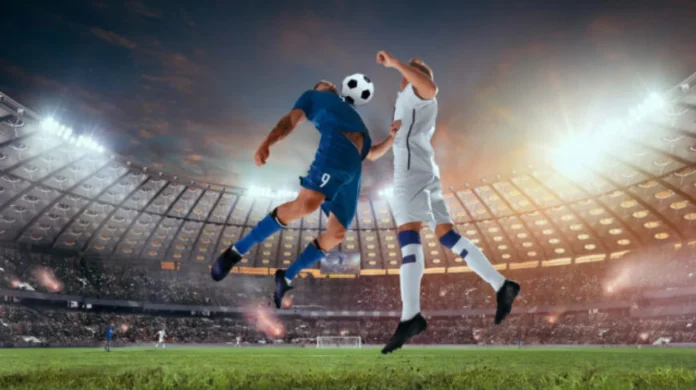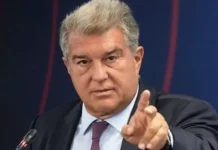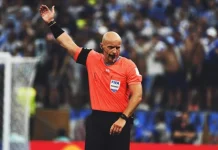The main mandate of FIFA as the global body governing the sport of football is to provide uniformity in the implementation of its rules and regulations in all our member organizations.
However, as the run up to 2025 progresses, a pattern of selective application has been established calling into question whether FIFA has the capability of administering justice. Although regulatory language has been made increasingly forceful, in particular by the revisions to the FIFA Disciplinary Code, practice has not always been in step with principle. Current instances in other continental leagues have brought a further bite to this criticism.
When the 2025 African Cup of Nations was being contested, a European player representing one of the major clubs committed an on-field offense of the elbow code, which was not followed by a suspension. In a similar case in the AFC Cup a Uzbek midfielder received a three-match ban. Although the situations were practically the same, there is evident inconsistency in the disciplinary decision prompting allegations of bias.
This failure on the part of FIFA to impose equal sanctions has led to criticism of FIFA by football associations as well as the loss of faith by football players, fans and club administrators. When the same offences have different implications based on the club a player represents or the zone of a particular country they play in, then the element of neutral regulation would start failing.
Financial Regulations And Elite Immunity
FIFA had an idea of its Financial Fair Play, which was intended to stabilize and harmonize the system by using financial stability and transparency. Its enforcement too, however, has been criticized as punishing small teams with little institutional clout and rewarding elite clubs. In 2025 there are several small clubs both in Africa and Eastern Europe that have been sanctioned with overspending limits, such as transfer bans and fines, which put competitive balance in leagues into disarray.
Meanwhile, cases involving high-profile clubs in Western Europe and the Middle East were quietly deferred to closed-door arbitration panels. Though some of these clubs had allegedly committed more significant breaches, they received extended windows to respond or avoided sanctions altogether. Observers have raised concerns that FIFA’s response to financial misconduct is often shaped less by objective thresholds than by a club’s political ties or commercial influence.
The Impact On Competitive Balance
This asymmetry has long-term implications. It consolidates dominance among already wealthy clubs and deters investment in emerging markets where financial penalties are less manageable. Over time, this distorts the global football economy, marginalizing developing leagues and reinforcing monopolies among elite clubs. FIFA’s regulatory inaction in high-stakes cases undermines the credibility of its financial governance, and in doing so, further alienates regions striving for growth.
Political And Commercial Pressures Shaping Enforcement
The intersection of governance with geopolitics is another axis where inconsistencies appear. FIFA’s disciplinary decisions often coincide with sensitive diplomatic developments or ongoing negotiations. In early 2025, disciplinary proceedings against a major Latin American football federation were postponed following bilateral discussions related to World Cup hosting responsibilities. While the official reasoning cited procedural delays, insiders reported that commercial interests discouraged FIFA from escalating the case.
These situations exemplify how political dynamics can weaken disciplinary independence. Enforcement is at times delayed to protect economic partnerships or state-level relationships, with implications for impartiality. Federations less tied to FIFA’s financial and strategic roadmap often face stricter scrutiny, while more influential actors are handled with caution.
Threat To Governing Neutrality
This trend poses risks to FIFA’s credibility as a neutral authority. When fans and federations perceive that violations are evaluated not on merit but on political convenience, trust in the fairness of football governance erodes. The blurred boundary between diplomacy and discipline weakens the foundational principle of equal treatment—a standard that FIFA itself claims as essential to global football integrity.
Impact On Competition And Public Trust
The disparities in the application of the rules are not limited to the legal or administrative domain but they affect the on pitch result and corroborate with the popular opinion. Controversial calls made also by referees and the VAR in the 2025 CONCACAF Gold Cup, especially those calls made during the VAR procedures, sparked widespread protests among people in North and Central America. Some of the judgments were seen to be against the precedent, and this influenced the development of teams negatively.
Such examples diminish the trust of the people in the fair events of competition. The fact that the matches are not contested based on skill by those interested in financial gain including supporters, players and their sponsors is disillusionment. This disaffection translates to sport stadium attendance, TV ratings, and how fans retain their loyalty in the long-run as far as football is concerned, a cultural game changer.
The moral authority of FIFA is likewise impacted as perceived non-protection of fairness is not considered. An organization that presents itself as a standard bearer of integrity and equality in sport on international platforms, it has been revealed that there are discrepancies between its mission and practices through repeated failures to enforce. The decline of this moral power is a carryover that spreads to the development of young players, the sponsorship and confidence they have in the organization, and overall national team morale.
Reform Efforts And Systemic Barriers
The growing criticism eventually led to FIFA introducing reform in January 2025 that aimed to create transparency and extend accountability. These were stronger protections against whistle blowers, a stronger definition of what discriminatory behaviour meant and a wider power to the disciplinary bodies to appeal confederation related decisions. Another major intention that FIFA revealed regarding disciplinary reasoning is to publish it more frequently to enhance transparency.
Although appreciated by advocacy groups and national federations, these reforms have not shown results yet. Cases brought under the new framework still exhibit procedural opacity, and independent legal reviews remain limited. The fundamental issue, according to governance experts, is that the reform process is still tethered to internal decision-making systems that lack external checks.
Calls For Independent Oversight
There is emerging consensus to the view that sustainable change needs an external enforcement mechanism that is separate to the internal mechanisms of governance FIFA enjoys. Legal and moral professionals claim that such a body must be given the mandate to adjudicate a rule breaking case free of any commercial or political interests operating under transparent stipulated public standards.
Still, FIFA has not been quick to accept such an organizational change. The inertia of the institutions, the risk of reputational losses and the opposition of the influential confederations is what has in the past hindered gains. The level of independence that would be achieved through this would need a lot of cultural change as opposed to just a procedural change.
A Defining Test For Global Football Governance
The ongoing discrepancies of FIFA enforcement of the rules are not limited to administrative shortcomings, but that bigger tension within the organization is between governance and interest. The universal perception that results are merited, not maintained, and that rules are enforced in a consistent, geography- and money-agnostic manner, are the cornerstones of the success of football.
The sport is becoming an industry with multi billion dollar interests that are globally connected and at the same time, the political involvement of components of that industry becomes more and more complicated in FIFA ways to enforce a neutral position. The extent to which the next round of reforms translate into real-world enforcement- or remain wish list statements- will help determine the path of football in the next 10 years.
Many stakeholders in all the federations, clubs and civil society are waiting to see whether FIFA can bring its practices to be in line with its principles. If inconsistencies persist, the world’s game may no longer reflect the fairness and equality that gave it global appeal. Otherwise, football is at the risk of being viewed as just another place where certain actors can buy favoritism and selective justice unless cleanliness is brought by the transparent, impartial and fair way, that, in this case, is applied to rule application.











